Are you looking to create a successful partnership that outlines clear roles and responsibilities? Crafting a well-structured letter can set the foundation for a productive working relationship. In this article, we'll explore essential components to include in your letter, ensuring that both parties are aligned and aware of their commitments. Join us as we dive into helpful templates and tips that will guide you in formalizing your partnership effectively!

Clarity of partnership objectives
Clarity of partnership objectives is essential in establishing a successful collaboration between organizations, such as non-profit entities and corporate stakeholders. Clear objectives provide a roadmap for initiatives, ensuring that all parties--ranging from project managers to financial contributors--understand their roles and responsibilities. For instance, setting measurable goals for community outreach programs can enhance accountability, while frameworks like SMART (Specific, Measurable, Achievable, Relevant, Time-bound) can guide teams in defining milestones. Regular communication channels, such as bi-weekly progress meetings or quarterly reports, can also ensure alignment on objectives, enabling partners to adapt to challenges effectively. Furthermore, documented agreements highlighting each organization's contributions, like funding amounts or resource sharing, can reinforce commitment and clarity, ensuring that the partnership achieves its intended impact.
Defined roles and responsibilities
Defining roles and responsibilities in a partnership is crucial for effective collaboration and achieving shared goals. Clear delineation of tasks, such as project management, marketing, and financial oversight, ensures accountability. For instance, the project manager may oversee timelines and deliverables, while the marketing lead focuses on brand development and outreach strategies. Financial roles might include a treasurer responsible for budgeting and financial reporting. Regular meetings in designated locations, such as conference rooms or virtual platforms, foster communication and alignment among partners. Additionally, establishing a conflict resolution process helps maintain a positive working relationship, essential for long-term success.
Communication protocols
Effective communication protocols play a pivotal role in ensuring partnership success. Clear guidelines define communication channels, including email, video conferencing tools such as Zoom, and instant messaging platforms like Slack. Regularly scheduled meetings, for instance, weekly or bi-weekly check-ins, help maintain alignment on project objectives and provide opportunities for feedback. Documentation practices, such as shared Google Docs for real-time collaboration and updates, enhance transparency. Designated roles and responsibilities should specify who communicates specific information, such as project updates and stakeholder notifications, to avoid overlaps and confusion. Lastly, emergency communication guidelines must outline steps for urgent situations, ensuring timely responses and decision-making.
Evaluation and performance metrics
Effective partnership roles and responsibilities are essential for evaluating performance metrics in collaborative projects. Clarity in allocation of tasks (designated duties based on individual expertise) is crucial for successful outcomes. Establishing specific performance indicators (quantifiable measures such as KPIs or OKRs) allows partners to assess contributions accurately. Regular review meetings at designated intervals (monthly or quarterly) facilitate open communication regarding progress and challenges faced. Documentation of agreed-upon goals (SMART goals) ensures alignment and provides a benchmark for success. Utilizing tools like project management software (applications such as Asana, Trello) can enhance tracking and accountability among partners. Ultimately, a structured evaluation process contributes to long-term sustainability and growth of the partnership.
Dispute resolution mechanisms
Partnership roles and responsibilities regarding dispute resolution mechanisms are crucial for maintaining a harmonious working relationship among stakeholders. Clear guidelines should outline procedures for addressing conflicts, including mediation, arbitration, and negotiation steps. For instance, mediation involves bringing in a neutral third party, such as a professional mediator, to facilitate discussions between disputing parties. Arbitration, on the other hand, involves a binding decision made by an arbitrator, which can expedite conflict resolution efficiently. Designated timelines must be established for each step to ensure timely resolutions, fostering a cooperative atmosphere and reducing potential disruptions to business operations. Regular training sessions on conflict resolution techniques can further empower partners to handle disputes proactively, enhancing overall partnership dynamics.
Letter Template For Partnership Roles And Responsibilities Samples
Letter template of Partnership Agreement: Roles and Responsibilities Outline
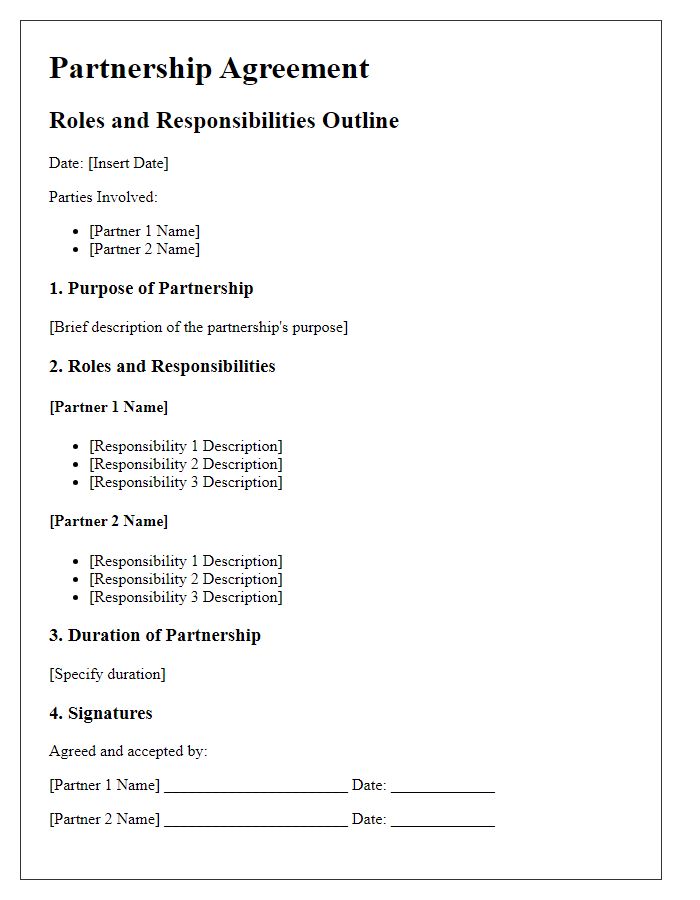
Letter template of Collaborative Project: Defining Roles and Responsibilities
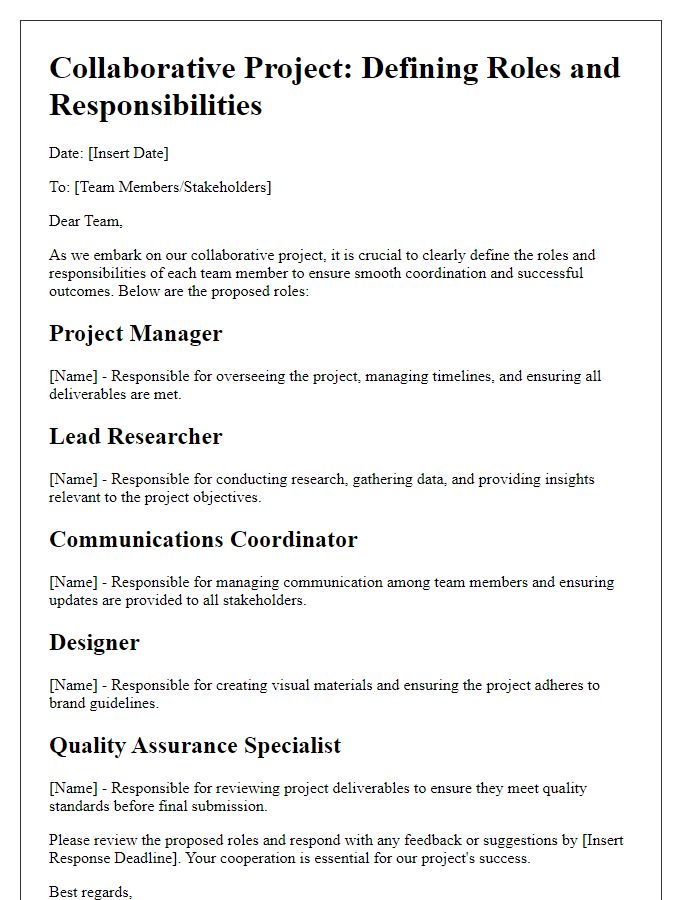
Letter template of Joint Venture: Responsibilities and Role Distribution
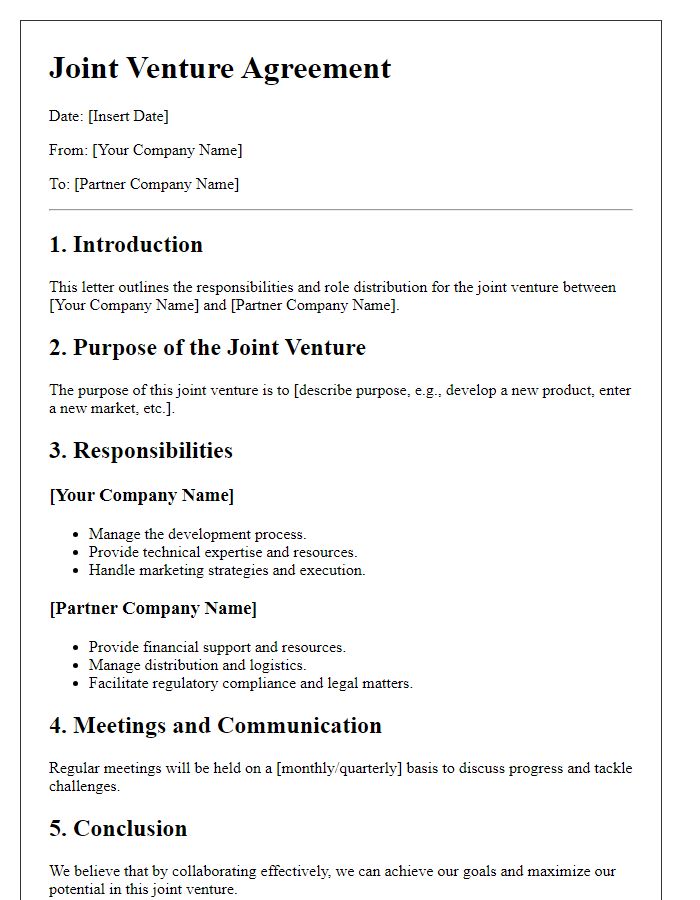
Letter template of Strategic Alliance: Role Assignment and Responsibilities
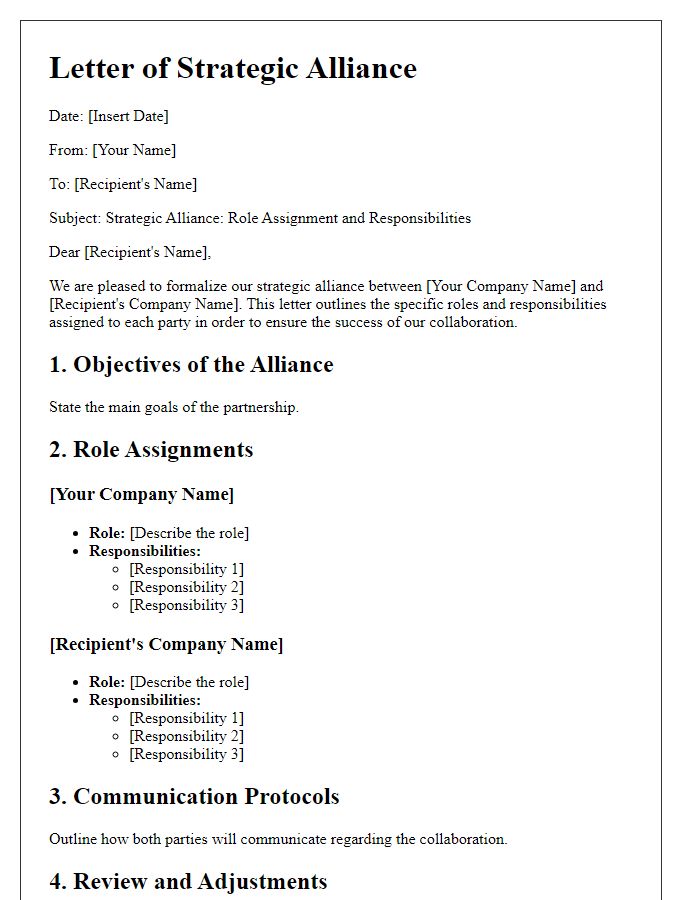
Letter template of Partnership Framework: Role Responsibilities Breakdown
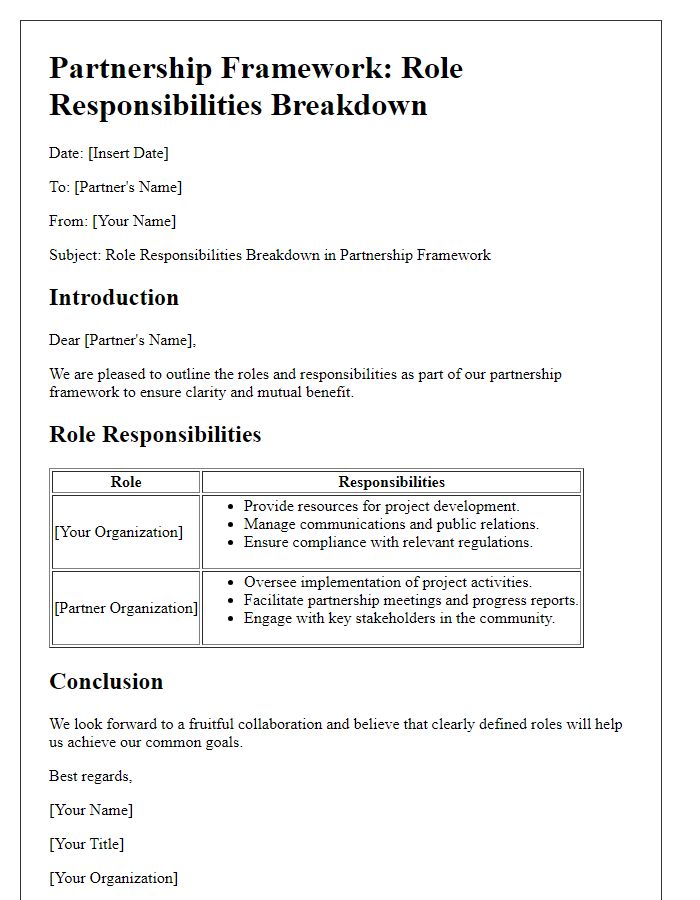
Letter template of Business Collaboration: Roles and Duties Specifications
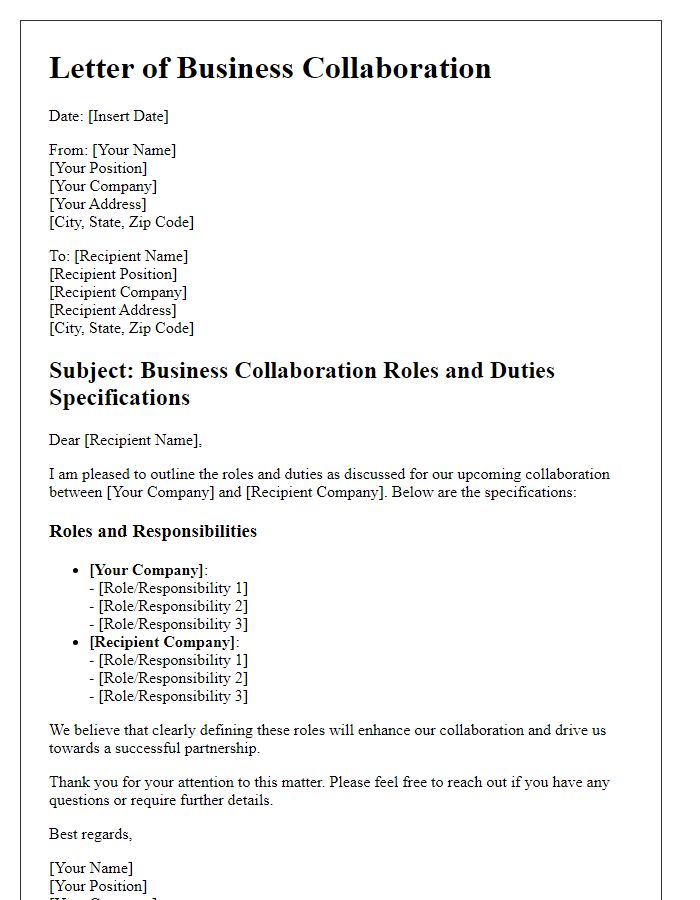

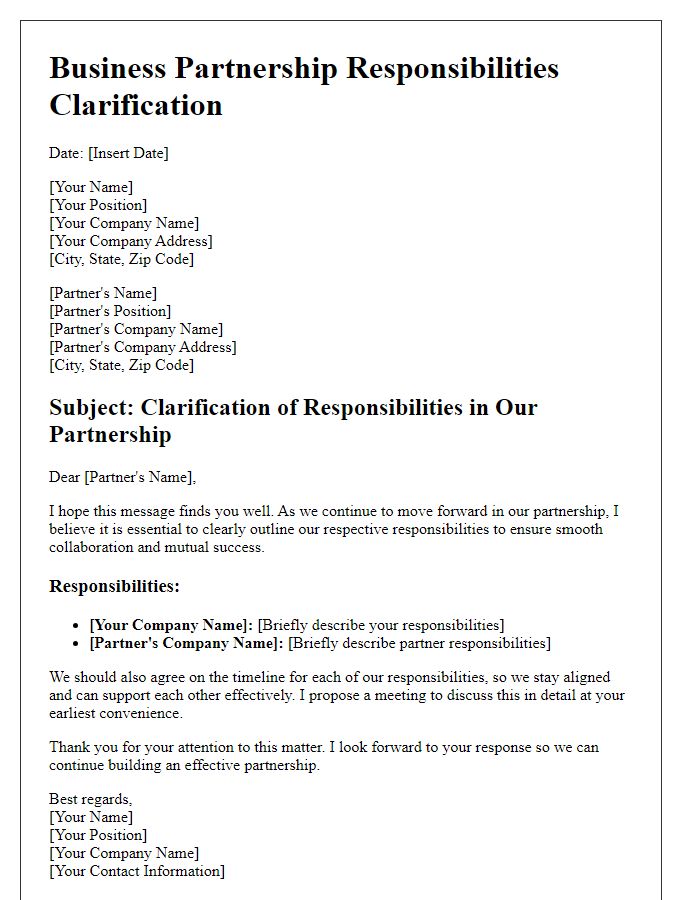
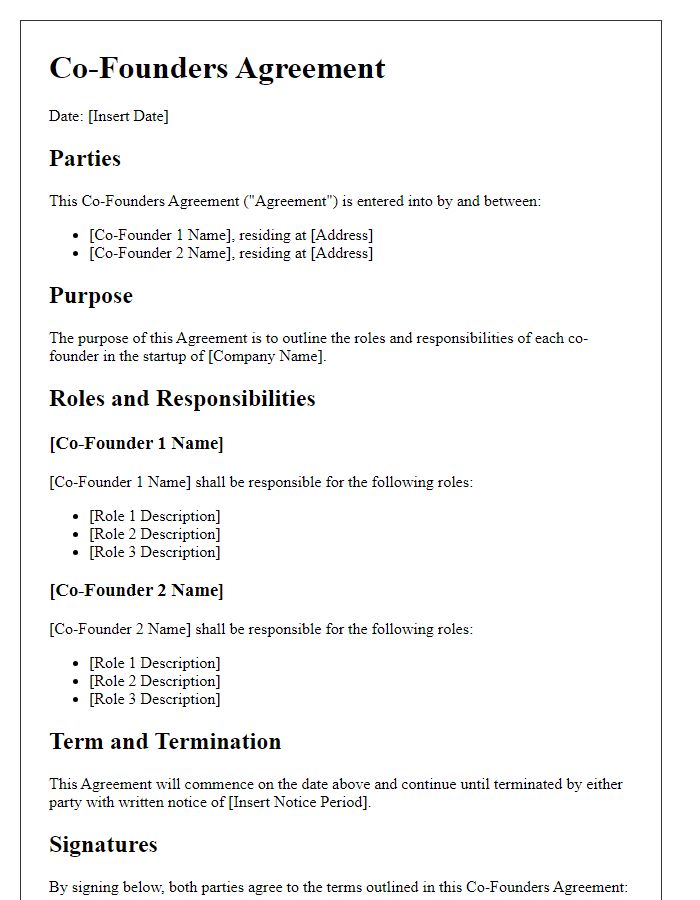
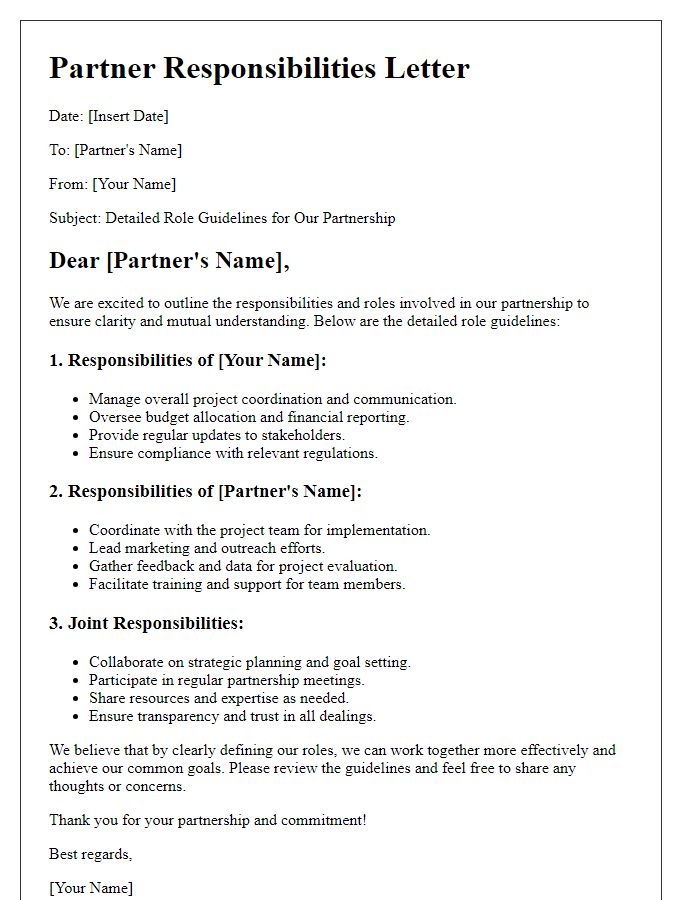
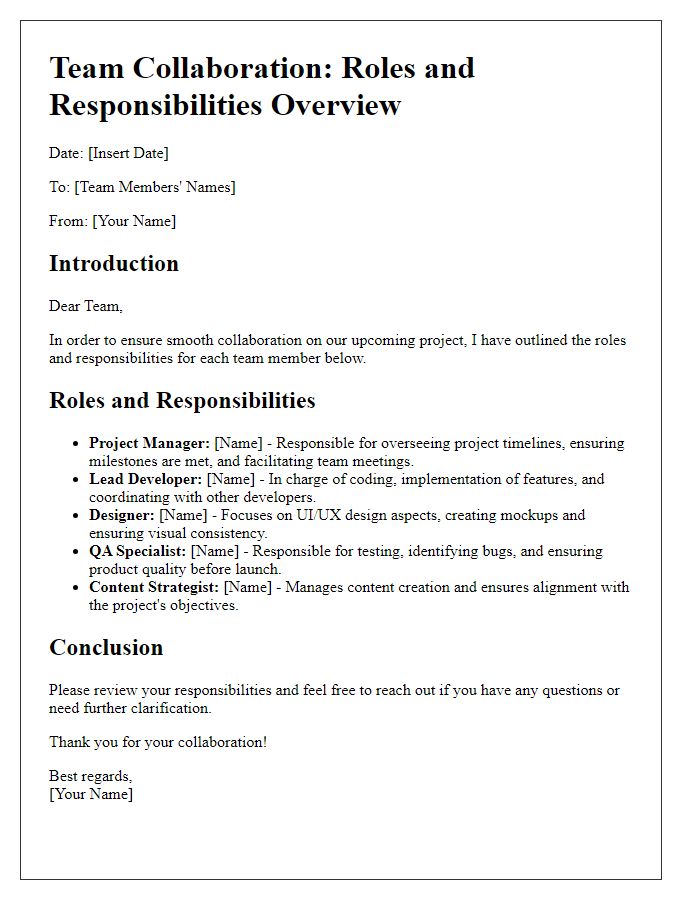


Comments